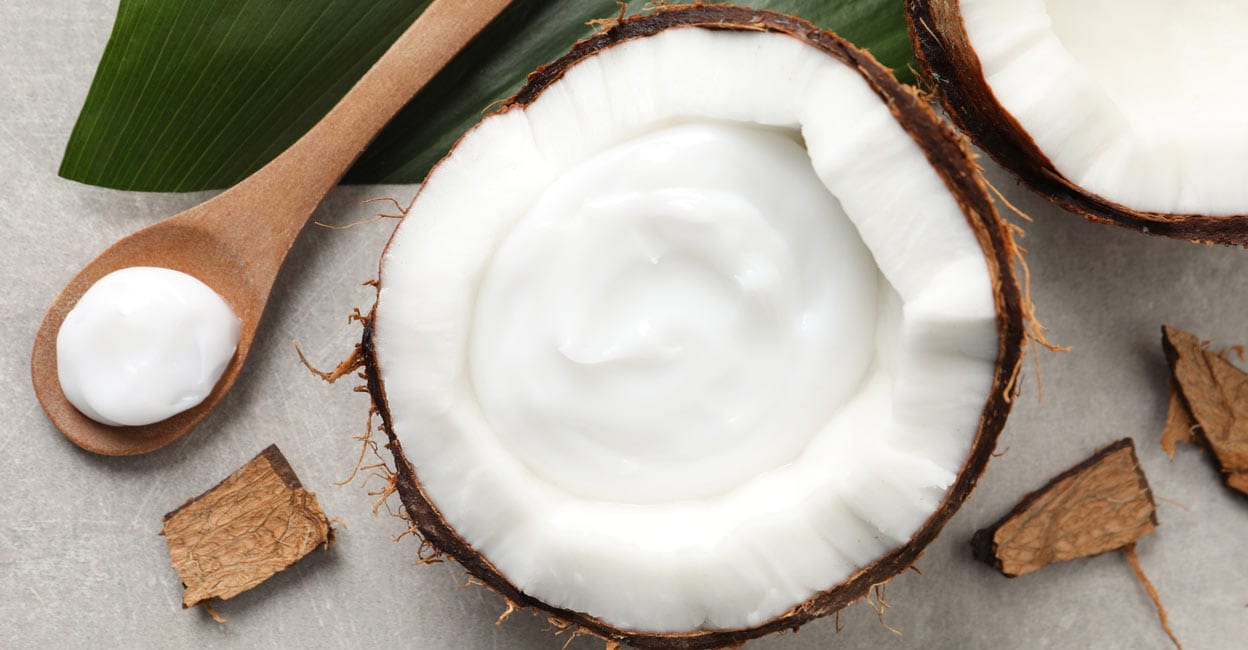Coconut cream vs coconut milk: Which one to use and when?

Mail This Article
Coconut cream and coconut milk are both derived from the flesh of mature coconuts, but they differ in their consistency, fat content, and usage. Coconut Cream is best for dishes where you want a rich, thick, and creamy texture. Coconut milk is more versatile for dishes that require a lighter, more liquid consistency.
Coconut milk
- Consistency: Thinner and more liquid, similar to dairy milk.
- Fat content: Lower than coconut cream, typically around 10-15%.
- Preparation: Made by simmering coconut flesh with a larger amount of water than coconut cream, then straining. The result is a thinner liquid that still retains some of the richness of coconut cream.
- Usage: Commonly used in stews, soups, curries, smoothies, and as a dairy milk substitute in various recipes. It's also the base for many coconut beverages and can be used in baking.
Coconut cream
- Consistency: Thick and creamy with a rich texture, similar to heavy cream.
- Fat content: High in fat, usually around 20-25%.
- Preparation: Made by simmering coconut flesh with a small amount of water, then straining to separate the cream from the liquid. It's also the top layer that rises when coconut milk separates.
- Usage: Used in recipes that require a rich, creamy texture, such as desserts, curries, and cocktails (e.g., pina coladas). It's also used to create dairy-free whipped cream.
Difference between coconut cream and coconut milk
Coconut cream is thicker and richer than coconut milk, making it ideal for adding creaminess to dishes.
Coconut cream has a higher fat content, making it more calorie-dense than coconut milk.

Coconut cream is used when a dish requires more body and richness, while coconut milk is used for a lighter coconut flavour.
Interchangeability
While they can sometimes be substituted for each other, doing so will affect the texture and flavour of the dish. If you need to use coconut milk instead of coconut cream, you can reduce the milk by simmering it to thicken it slightly.
Understanding these differences helps you choose the right one for your recipes and culinary needs.
How to make coconut milk and cream
Ingredients
1 fresh, mature coconut
Hot water
Equipment
Hammer or heavy knife
Blender or food processor
Cheesecloth or fine mesh strainer
Bowl
Preparation
Use a hammer or the back of a heavy knife to crack open the coconut
Rotate the coconut as you tap around the middle until it splits open
Pour the coconut water into a bowl and set it aside (you can drink it or use it in another recipe)
Cut the coconut meat into small pieces and place them in a blender or food processor
If you are from Kerala, you might be more familiar with the process of grating the coconut using a 'chirava'
Add about 1 cup of hot water for every 1 cup of coconut meat
Blend the mixture until smooth and creamy. This may take a few minutes
Line a bowl with cheesecloth or use a fine mesh strainer
Pour the blended coconut mixture into the cheesecloth or strainer
Gather the edges of the cheesecloth and twist to squeeze out the coconut milk
This is the 'first coconut milk'. You can grind the leftover coconut pulp with some more water, extract the milk again through the same process. You will get a thinner version called 'second coconut milk'
If you want to make coconut cream, let the first coconut milk sit for a while, and the thicker cream will rise to the top. You can then skim it off
Transfer the coconut cream to a clean jar or container
Store in the refrigerator for up to a week
The coconut cream may separate in the fridge. Just stir it to recombine before using.
The leftover coconut pulp can be dried and used as coconut flour or in other recipes.

